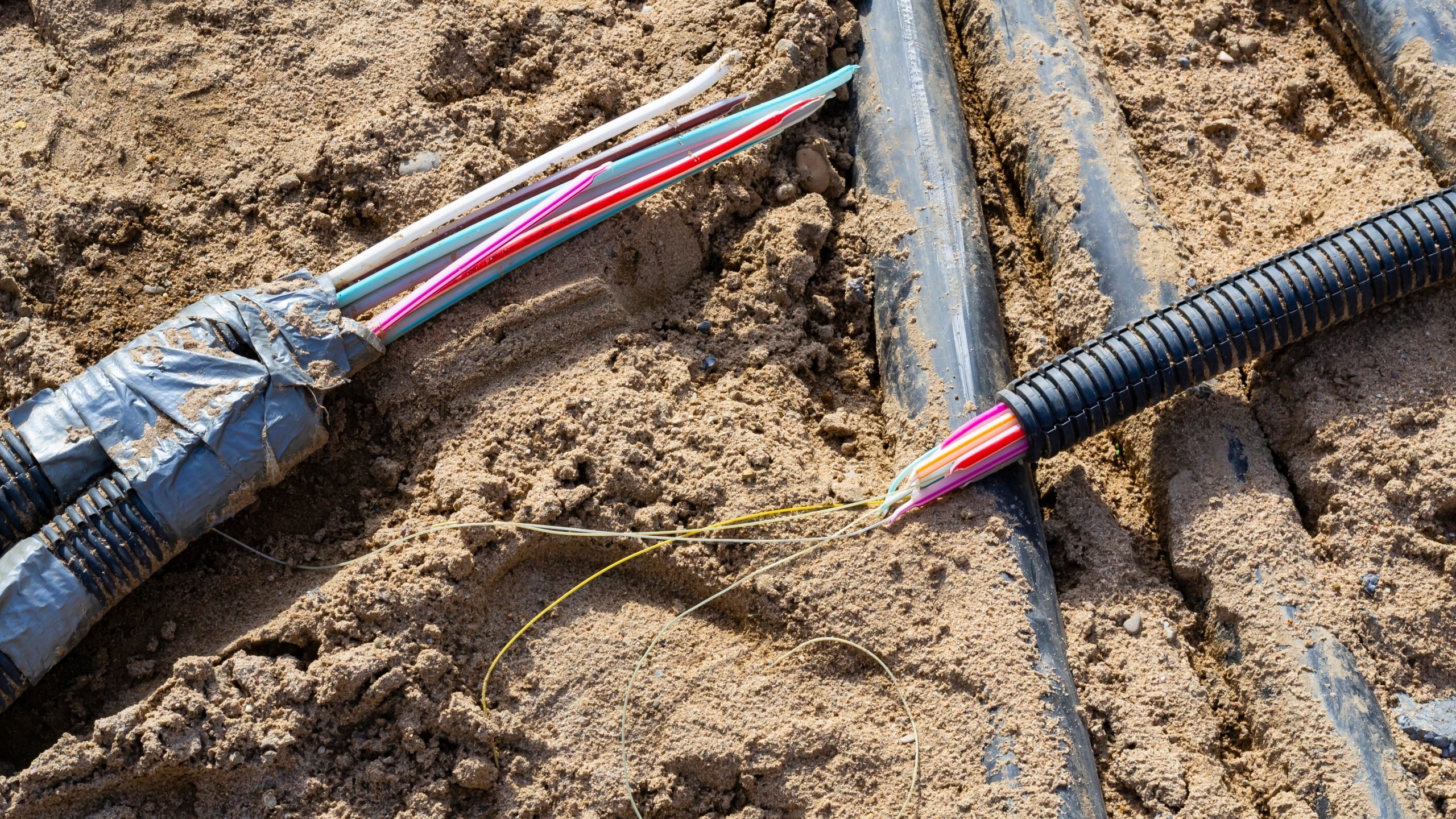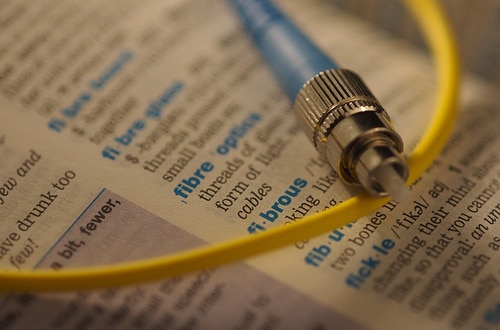
The Minister for Communication, Digital Technology, and Innovations, Samuel Nartey George sent a clear warning to individuals and companies engaged in the cutting of fibre optic cables across the country. The remarks were made during a press briefing on Wednesday, April 9, 2025, in Accra.
According to Hon. George, steps will be taken in the near future to hold contractors and other actors who destroy fibre optic cables, criminally liable.
“One of the things we’ll do is to deepen the designations of Critical National Information Infrastructure, and make it a criminal offence irrespective of whether you are a road contractor or whether you are Ghana water. If you cut fibre, you will be criminally liable for cutting it.”
“If you remember three years ago, when we had a triple fibre cut in the country on the same day, 70 % of our country could not make phone calls, imagine what that means for a country like this, or when we had the subsea cable cuts, what that did to us, and so fibre is now our lifeline and we need to protect it well”, the Minister added.
Industry loses about GHS 280 million due to fibre cuts
Between January and November, there were a total of 10,233 fibre optic cable cuts across the country. These incidents have cost the telecommunications industry a staggering $17,415,886.87 or GHS 278,654,176 to repair, with each repair averaging $1,639.61. This means that funds that we could have used to expand and enhance the existing services had to be reallocated to repair these damaged fibre networks. Several factors have been identified as major causes of fibre cuts in Ghana. These are road construction, theft, vandalism, drainage construction, private developer activities, and natural disasters. Additionally, operational works by other utility companies, such as Ghana Water and the Electricity Company of Ghana.
The importance of fibre in the modern telecoms industry
Fibre is a critical resource laid underground or strung above ground to connect to the network operating systems to provide faster data transfers, supporting high bandwidth applications and services. It ensures real-time communication and seamless connectivity. Fibre is known to be very reliable, offering a secure choice for data transmission. It is resistant to spatial interferences and ensures clear transmissions. In many cases, fibre is the most preferred resource for providing seamless telecommunications services and remains an essential component of modern network operations.
Impact on Service Quality and Customer Experience
Although fibre is expected to be secure when buried underground, the experience in Ghana is quite different. There are frequent cuts and damages to fibre laid across the country. These frequent disruptions directly affect the quality and availability of telecom services to Ghanaians, disrupting communication, internet connectivity, and other essential services that rely on our networks. These cuts, sadly, impact customer experiences. It creates congestion, poor voice calls, slow internet experience, and, in some cases, completely cuts off network services. This situation is unacceptable, and it undermines the significant investments made by telecom operators to deliver reliable services.
Ongoing Efforts to Address the Issue
In response to these challenges, the Chamber has been proactively engaging with the Minister of Roads and Highways, road agencies, road contractors, utility companies, and other key stakeholders who undertake major constructions and excavations in the country. Our efforts include active participation in the National Engineering Coordinating Team (NECT) meetings, where we continue to push for better collaboration to protect telecom infrastructure during construction and utility activities.
Despite these efforts, some entities involved in these damaging activities have remained recalcitrant, repeatedly causing harm to critical telecom infrastructure. These actions have had a direct impact on service quality, leading to outages, slowdowns, and interruptions that frustrate our subscribers and hinder the country’s digital progress.
Taking Stronger Measures
To ensure that Ghanaians continue to receive high-quality service, the Chamber is not only ramping up its engagement with the relevant stakeholders but also seeking the support of the Police and Judiciary to prosecute those responsible for these recurrent fibre cuts. The Chamber is proposing that its members consider taking legal action against uncooperative individuals and entities, ensuring they are held accountable according to the law.
Our Commitment to Quality Service
The Ghana Chamber of Telecommunications remains committed to ensuring that all subscribers enjoy uninterrupted, high-quality telecom services. We will continue to work tirelessly with all stakeholders to protect our nation’s telecom infrastructure and to hold accountable those who undermine it.
Ghanaians need to protect telecommunications fibre – John Mahama urges
The flagbearer of the National Democratic Congress (NDC), H.E John Dramani Mahama has called on road contractors and all Ghanaians to protect the fibre of telecommunication companies across the country.
He made the strong appeal during a recent media engagement in Accra. In response to a question on what his administration will do to ensure internet stability, following the events of March 14, 2024, the former president, called for extra care to protect the fibre that is laid underground and on poles across the country by telecommunication companies.
“We even have domestic fibre cuts. When they are doing road construction, they cuts the fibre links. And so we also must be careful how we protect the fibre that we have.”
His remarks come on the back of a recent engagement with the leadership of the Ghana Chamber of Telecommunications (GCT) and its sister outfit the EMIs Chamber of Ghana. During that meeting, the two Chambers called for increased attention and support for the telecommunications industry as well as the digital payments ecosystem.




